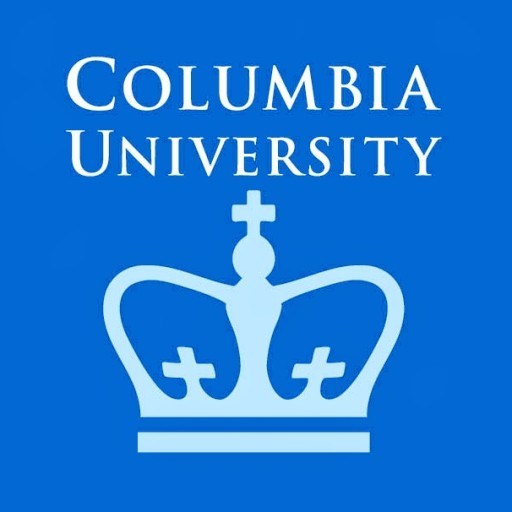Photos of university / #csuci
Program Description: Bachelor of Science in Physics with Concentration
The Bachelor of Science in Physics with a Concentration offers a comprehensive and rigorous education in the fundamental principles of physics, preparing students for careers in scientific research, engineering, or further study in graduate programs. The curriculum is designed to provide students with a strong foundation in classical mechanics, electromagnetism, thermodynamics, quantum mechanics, and modern physics, along with hands-on laboratory experience and opportunities for research projects. Students will develop essential analytical, problem-solving, and quantitative skills that are vital for innovation and advancement in various scientific and technological fields.
Throughout the program, students will engage in coursework that emphasizes both theoretical understanding and experimental techniques. In addition to core physics courses, the program encourages interdisciplinary learning by integrating mathematics, computer science, and engineering principles. Students have access to state-of-the-art laboratories and faculty-led research initiatives, allowing them to gain practical experience and contribute to cutting-edge projects such as condensed matter physics, astrophysics, or materials science.
The program also fosters critical thinking and scientific communication skills, preparing graduates to present their findings clearly and effectively. Career development support is integrated into the program, providing students with guidance on internships, research opportunities, and pathways to employment or graduate studies. Graduates of the Physics Concentration are well-equipped for diverse roles in academia, industry, government agencies, and technology sectors, or to pursue advanced degrees in physics, engineering, or related fields. Dedicated faculty mentors, modern facilities, and a vibrant academic community ensure students are engaged, challenged, and supported throughout their educational journey.
This program emphasizes not only mastery of physics content but also the application of scientific principles to solve real-world problems, fostering innovative thinking and lifelong learning. Whether students aspire to become research scientists, engineers, educators, or pursue careers in emerging technologies, the Bachelor of Science in Physics with Concentration provides a solid foundation to achieve their professional goals and contribute meaningfully to society’s scientific and technological progress.
120 unitsSummary of Units:
|
||||||||||||
Lower Division Requirements - 34-35 unitsMATH 150 - Calculus I Units: 4 MATH 151 - Calculus II Units: 4 MATH 230 - Logic and Mathematical Reasoning (Cross-listed as PHIL 230) Units: 3 MATH 240 - Linear Algebra Units: 3 MATH 250 - Calculus III Units: 3 PHYS 200 - General Physics I Units: 4 Select one of the following:PHYS 201 - General Physics II Units: 4 and one additional science course Units: 3-4 or One two-semester science sequence Units: 7-8 Select one of the following:COMP 105 - Computer Programming Introduction Units: 3 COMP 150 - Object-Oriented Programming Units: 4 Select an additional Computer Science course:COMP 150 - Object-Oriented Programming Units: 4 or above or COMP 102 - Web Development Units: 3 Upper Division Requirements - 20 unitsMATH 300 - Discrete Mathematics Units: 3 MATH 331 - History of Mathematics Units: 3 MATH 350 - Differential Equations and Dynamical Systems Units: 3 MATH 351 - Real Analysis Units: 3 MATH 352 - Probability and Statistics Units: 3 MATH 451 - Complex Analysis Units: 3 MATH 499 - Senior Colloquium Units: 1 (Twice) Electives in Major - 9-13 unitsNote: Courses used for the concentrations cannot be counted as elective. Students planning on teaching math have to choose MATH 492 for field experience requirement. Other courses recommended for teaching careers are marked with T. MATH 318 - Mathematics for Secondary School Teachers Units: 3 T MATH 330 - Mathematics and Fine Arts Units: 3 T MATH 345 - Digital Image Processing (Cross-listed as COMP 345, PHYS 345) Units: 3 MATH 354 - Analysis of Algorithms Units: 3 MATH 393 - Abstract Algebra I Units: 3 T MATH 429 - Operations Research Units: 3 MATH 430 - Research Design and Data Analysis Units: 3 MATH 437 - Mathematics for Games, Simulations, and Robotics Units: 3 MATH 438 - Philosophy of Mathematics (Cross-listed as PHIL 438) Units: 3 MATH 445 - Image Analysis and Pattern Recognition (Cross-listed as PHYS 445, COMP 445)Units: 3 MATH 448 - Scientific Computing Units: 3 MATH 450 - Partial Differential Equations and Mathematical Physics Units: 3 MATH 452 - Computational Bioinformatics (Cross-listed as COMP 452) Units: 4 MATH 480 - Differential and Riemannian Geometry Units: 3 MATH 482 - Number Theory and Cryptography Units: 3 T MATH 484 - Algebraic Geometry and Coding Theory Units: 3 MATH 490 - Topics in Modern Mathematics Units: 3 MATH 492 - Internship Units: 1-3 T (Required for teachers) MATH 494 - Independent Research Units: 1-3 MATH 497 - Directed Studies Units: 3 MATH 499 - Senior Colloquium Units: 1 Concentration - 6-10 unitsBy the sophomore year, in order to plan their electives, students should decide on one of the concentrations and take all courses listed in that section. Choice of other concentrations or individualized concentrations is possible upon approval of the mathematics advisor. Physics - 6 unitsStudents selecting this concentration should take PHYS 200 and PHYS 201 (8) as the science sequence. MATH 450 - Partial Differential Equations and Mathematical Physics Units: 3 Upper division Physics course Units: 3 Interdisciplinary GE Course outside major - 3 unitsSelect one interdisciplinary GE Course 3 unitsRecommended: COMP 447 - Societal Issues in Computing Units: 3 COMP 449 - Human-Computer Interaction (Cross-listed as PSY 449) Units: 3 PHYS 434 - Introduction to Biomedical Imaging (Cross-listed as BIOL 434, HLTH 434) Units:4 |
To graduate, students must complete 120 units minimum (40 units must be upper division) including all General Education (GE) and Graduation Requirements . The following areas must be included:
Additional Lower Division A-E (GE) Requirements not met within the major
Nine units of Upper Division Upper Division Interdisciplinary GE (UDIGE), courses are numbered 330-349 and 430-449. Six units may be within the major, 3 units must be outside the major (C or better grade)
Multicultural Requirement (C or better grade)
Language Requirement (C or better grade)
American Institutions Requirement
Free electives as needed to meet minimum units for graduation
Tuition and fees for the Physics concentration at California State University vary depending on residency status. For in-state students, undergraduate tuition is approximately $7,504 per year, while out-of-state students pay around $19,384 annually. Additional fees include campus fees, course materials, laboratory fees, and health insurance, which can add several thousand dollars to the total cost annually. The university offers a range of financial aid options, including federal and state grants such as the Cal Grant program, which can significantly reduce the financial burden for eligible students. Students are encouraged to complete the Free Application for Federal Student Aid (FAFSA) each year to determine eligibility for need-based aid and scholarships. Cal State University system also provides institutional scholarships based on academic achievement, financial need, or specific talents. Work-study programs are available to help students generate income while gaining professional experience, with opportunities on campus such as assisting in laboratories, tutoring, and administrative roles. Additionally, students can consider external scholarship opportunities from private foundations, corporations, and community organizations. Loan options include federal subsidized and unsubsidized loans, which students can utilize to finance their studies, but should be mindful of repayment obligations after graduation. The university also offers payment plans that allow students to split tuition payments over several months, easing financial stress. International students pursuing the Physics concentration should factor in higher tuition rates and additional costs for visas, insurance, and living expenses. Many students combine part-time employment with their studies to help cover personal expenses. The university’s financial aid office provides resources, counseling, and workshops to assist students in planning their finances and navigating funding options effectively. Overall, financing a degree in Physics at CSU involves a combination of institutional aid, federal programs, scholarships, loans, and personal funds, emphasizing the importance of early planning and application to maximize available resources.
The Physics Concentration at California State University offers students a comprehensive education in the fundamental principles of physics, preparing them for careers in research, industry, education, or further graduate study. The program is designed to provide students with a solid theoretical foundation complemented by laboratory experience and practical applications. Students typically take core courses in classical mechanics, electromagnetism, thermodynamics, statistical mechanics, quantum mechanics, and modern physics, which are complemented by advanced electives tailored to individual interests, such as astrophysics, condensed matter physics, or computational physics.
The curriculum emphasizes critical thinking, problem-solving skills, and experimental techniques, often involving hands-on laboratory work that fosters an understanding of data analysis, instrumentation, and scientific communication. The program encourages students to engage in research projects, internships, or collaborative efforts with faculty to apply their knowledge to real-world problems. Opportunities for interdisciplinary coursework and participation in seminars, workshops, and professional development events further enhance the educational experience.
Faculty members are actively involved in research across diverse fields, including nanotechnology, astrophysics, material science, and theoretical physics. Students benefit from close mentorship and access to state-of-the-art laboratories and computational resources. The program prepares graduates for diverse career pathways, including employment in technology firms, aerospace industries, government labs, or pursuing advanced degrees in physics or related fields. The university also supports students with career counseling, conference participation, and strong alumni networks to facilitate professional growth and opportunities.
Overall, the Physics Concentration at California State University aims to cultivate a deep understanding of physical principles, foster analytical and technical skills, and inspire innovation and inquiry among students, equipping them for successful careers and contributions to scientific advancement. The program duration, admission requirements, and specific course offerings may vary and are detailed by the university's academic catalog and departmental advisors.



